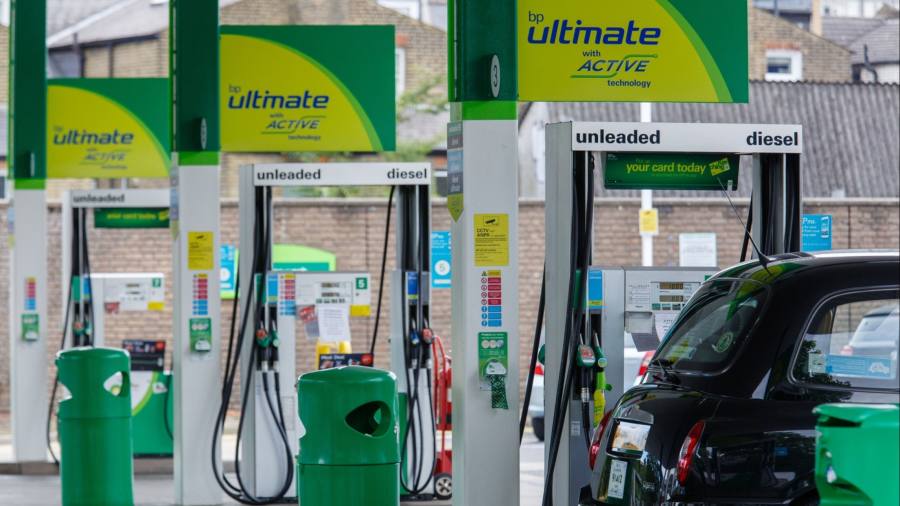BP has scaled back its industry-leading commitment to cut oil and gas production by 2030 after soaring fossil fuel prices helped the British energy major to the highest annual earnings in its 114-year history.
The company on Tuesday reported underlying profits for last year of $27.7bn, eclipsing the $26.3bn it made in 2008 and more than double the $12.8bn it reported after a strong 2021.
BP had been in the midst of one of the most ambitious strategic overhauls in the sector after committing to cut oil and gas production by 40 per cent by 2030 as part of a plan launched three years ago by chief executive Bernard Looney to reduce the group’s emissions and pivot to lower-carbon forms of energy.
But in what will be seen as a major U-turn, the group scaled back its plans to cut production, indicating that oil and gas output in 2030 was now expected to be only 25 per cent lower.
Following the record profits, Looney said BP would spend $8bn more on its “transition” businesses — biofuels, convenience, charging, renewables and hydrogen — between now and 2030 than previously planned.
However, the group said it would also increase its oil and gas investments by the same amount, targeting “short-cycle fast-payback opportunities with lower additional operational emissions”.
“It’s clearer than ever after the past three years that the world wants and needs energy that is secure and affordable as well as lower-carbon,” Looney said.
The company’s shares were up almost 4 per cent in morning trading in London on Tuesday.
Capital expenditure in 2022 was $16.3bn. This year BP plans to spend $16bn-$18bn, an increase on its previous target of $14bn-$16bn per year until 2025.
The group’s results continue a historic series of earnings for the world’s biggest oil and gas companies, which have all profited from high fossil fuel prices in the past 12 months caused by Russia’s invasion of Ukraine.
ExxonMobil last week reported a $55.7bn profit for 2022, the highest ever annual earnings for a western oil company, while Shell posted record profits of $39.9bn and Chevron made $36.5bn.
BP said it would increase its dividend for the fourth quarter by 10 per cent and announced plans to buy back a further $2.75bn in shares.
The company’s underlying profits for the final three months of the year were $4.8bn, up from $3.3bn a year earlier but just under analysts’ average estimate of $5bn.
Credit: Source link














